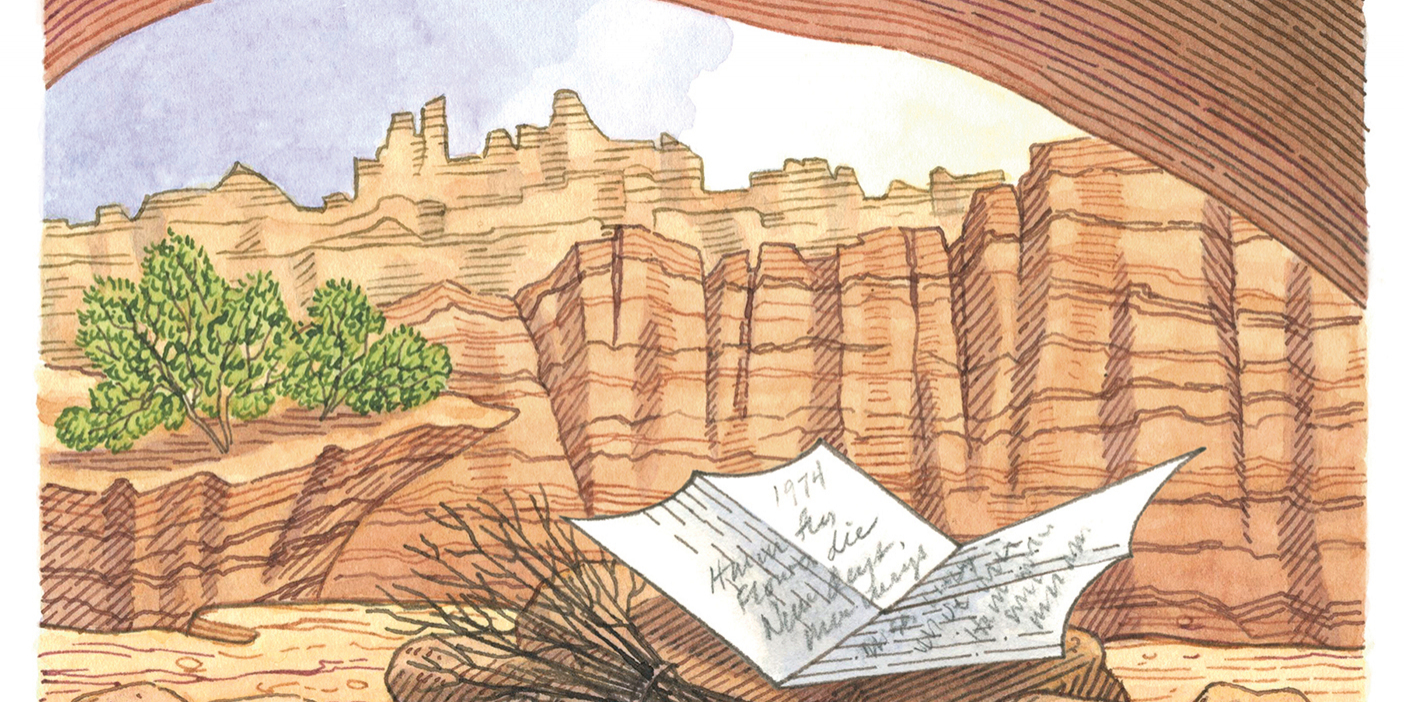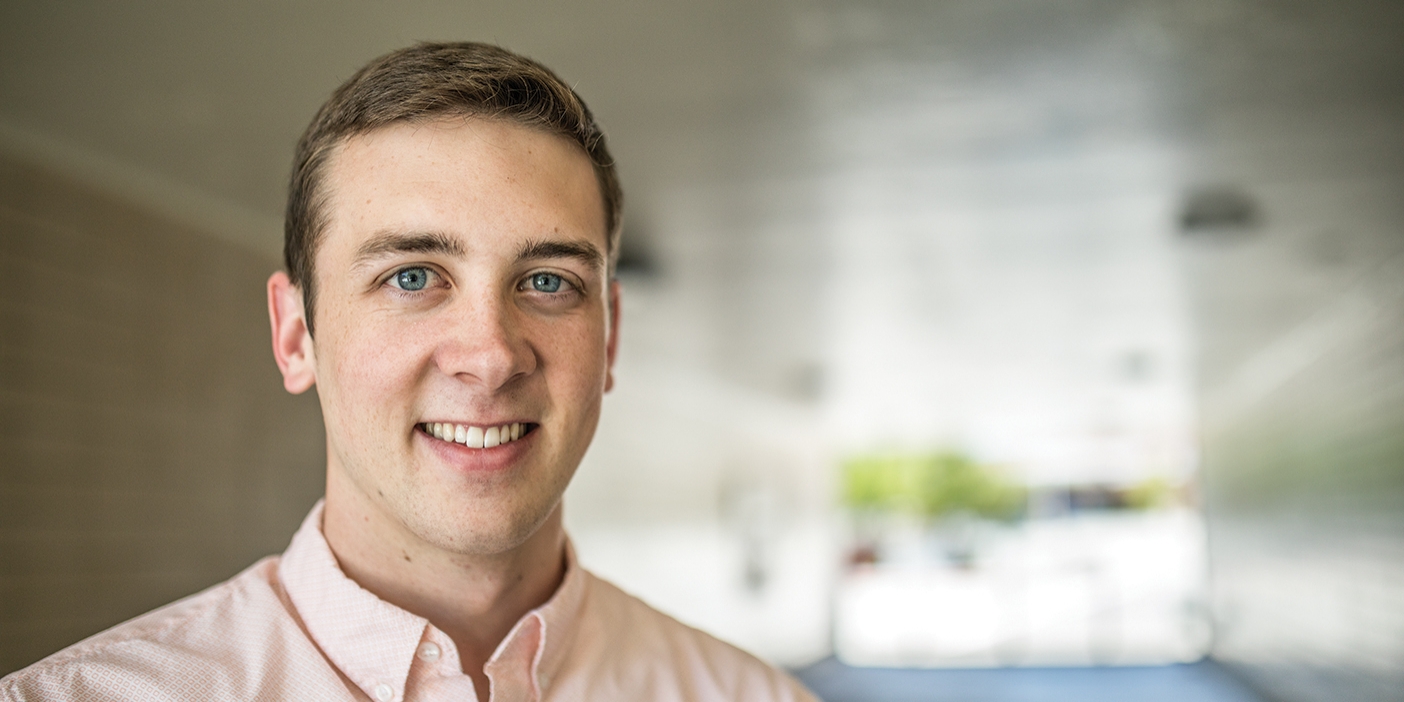An Experiment upon the Word
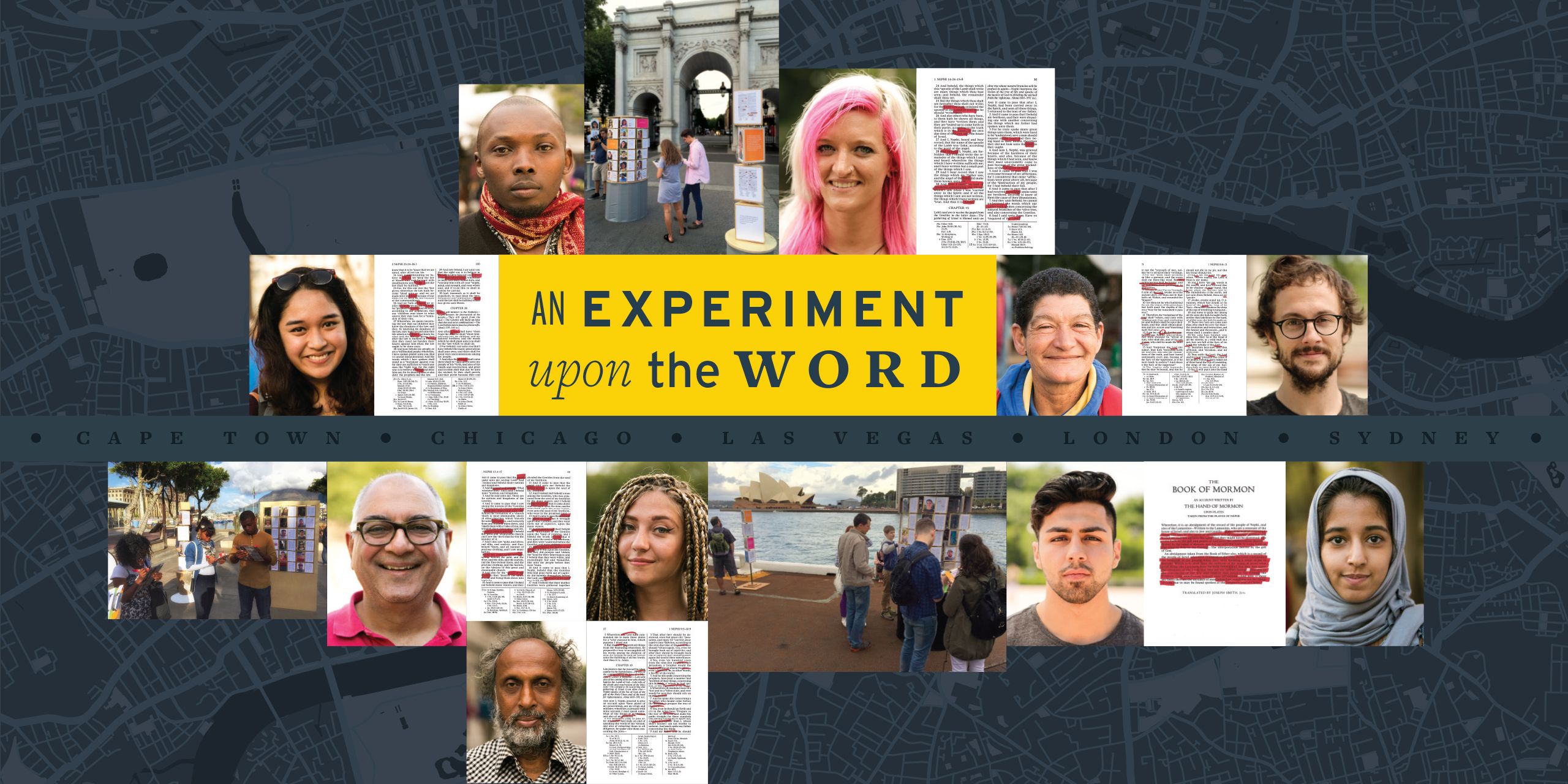
A BYU advertising team finds that the best tool for changing perceptions about the Book of Mormon is the Book of Mormon.
By Amanda K. Fronk (BA ’10, MA ’ 14) in the Spring 2018 Issue
All photos courtesy BYU AdLab
For many, the Book of Mormon is a Broadway musical—not another testament of Jesus Christ. That’s a problem, says BYU AdLab faculty advisor Jeffrey A. Sheets (BA ’98), if you want people to take missionaries seriously and actually read the Book of Mormon. Noodling over ways to change the associations people have with the scripture, Sheets found that a simple interaction had a greater impact than billboards and commercial spots.
“If we use creative problem-solving to solve other things, like business problems,” says Sheets, “maybe we need the same type of thinking for hastening the work.” With the help of a student team, Sheets decided to use the book itself to change people’s perceptions, one page at a time.
Piggybacking on a round-the-globe field study experience already in the works, the group set up displays in Sydney, London, Chicago, Las Vegas, and Cape Town, South Africa, and asked passersby to participate in an experiment: read a single page from a Christian book and highlight mentions of deity. The students then asked participants for their impressions.
People of various belief systems—Christians, atheists, Muslims, and others—collectively read all 531 pages of the Book of Mormon. Their collective impression? This is a book about Jesus Christ. Some described it matter-of-factly, like Will, an atheist from Illinois, who read page 440 (3 Ne. 16:17–20; 17:1–9) and reported, “The page that I read seemed to reference the Old Testament, and I could see that it was talking about Jesus. If anything talks about God, this book does.”
Others connected the experience to their own beliefs, like Rafi, a Muslim from the United Kingdom who read page 430 (3 Ne. 11:31–41; 12:1). “This is the first time that I have ever read a page of Christian scripture. I think the page was good,” he said. “It shows that God is a God of miracles, not a God of punishment. . . . I believe that God is that way. He wants to help us. Reading this book has helped me.”
“The book speaks for itself,” says Sheets. “This is another testament of Jesus Christ, not because it says so here on the cover, but because if you read it, you’ll come to know for yourself.”
Now Sheets and his team are working with the Church’s Missionary and Priesthood Departments, prototyping and refining the experiment. In one test, the BYU team worked with missionaries and local young single adults to run a display in Georgia over three days. Elder Kirk, who had been serving for 23 months, calls it a highlight of his mission: “My whole mission I have been trying to get people to read the Book of Mormon, and in just three days I have gotten as many or more people to read from it than the whole rest of my mission.”
In a 2017 seminar for new mission presidents, Elder D. Todd Christofferson (BA ’69) shared a video about the BYU experiment and asked, “Given, then, that the power of the Book of Mormon comes as we allow the book to speak for itself, the question for you is, how will your missionaries get people to read the Book of Mormon and also to pray with real intent about its truthfulness?”
Advertising student Janessa J. Kincaid (BA ’18) says the project allowed her to see a meaningful purpose in advertising. “The reason why I majored in advertising was to influence people for good in a broad sense,” she says. “[The project has] been a good example to me of how even something as simple as reading a page has influenced thousands of people across the world. . . . It’s been motivating to me to keep thinking outside the box and continue on this career path of sharing goodness.”
Below, participants share their personal experiences with the experiment. Their responses are taken from their interactions with the BYU AdLab team.
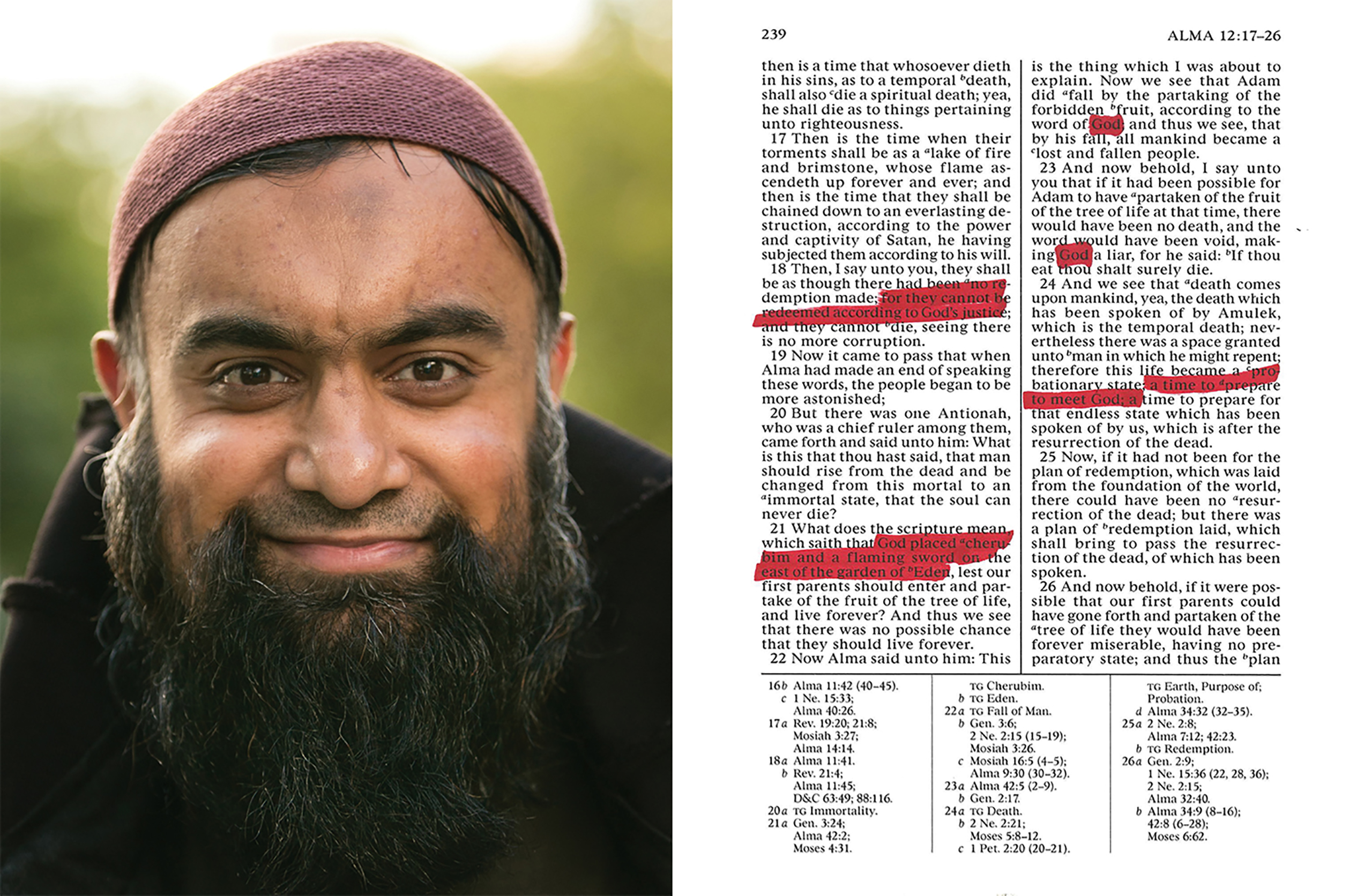
Nazam, United Kingdom, Muslim, page 239
“I can see a lot of similarities between what I read here and what I read in the Quran. I do not think the two are as different as many believe them to be. I think we actually believe very similar things. I felt good as I read it, and as long as it is teaching people to be good to one another, then I believe it to be good.”
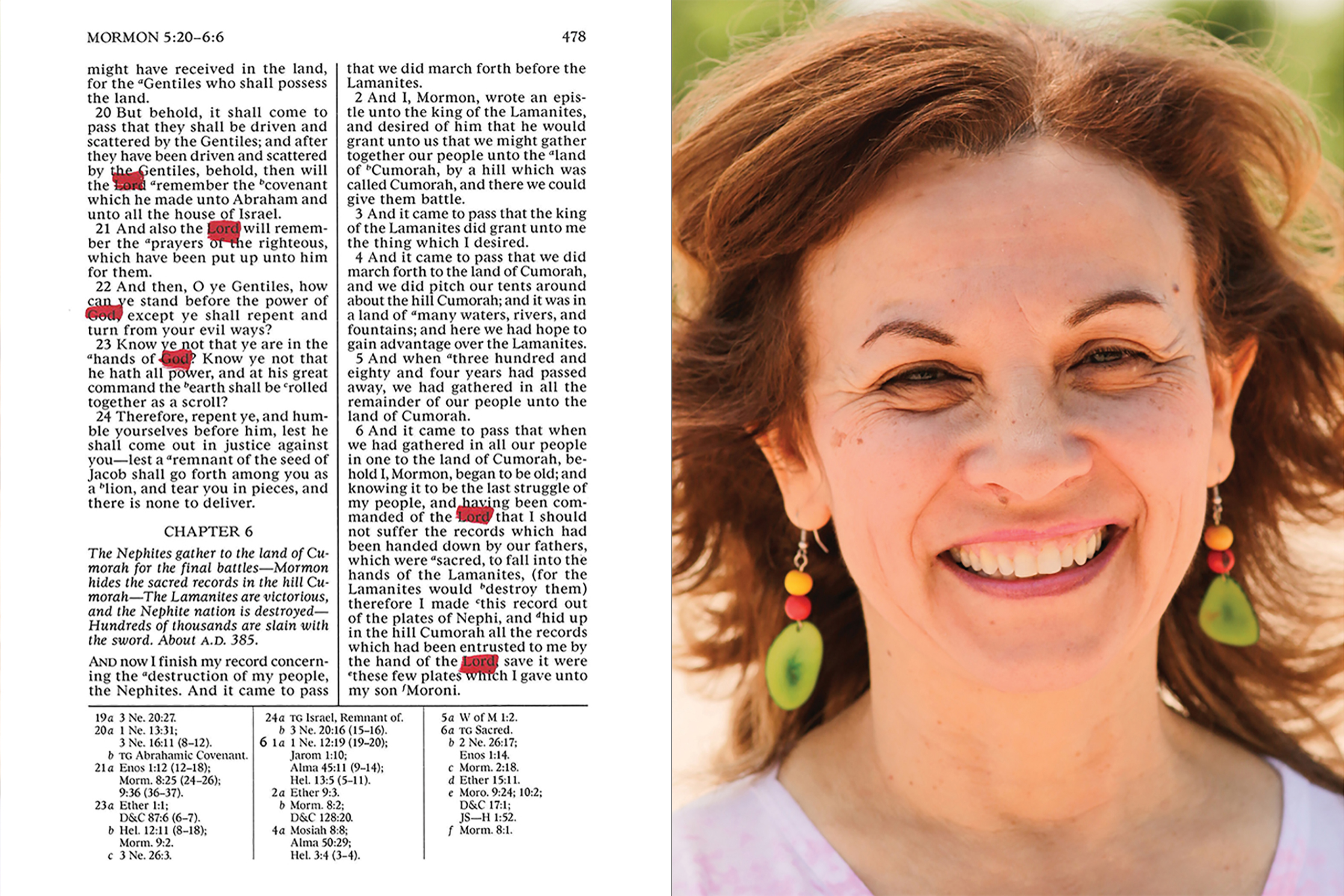
Miriam, Brazil, Christian, page 478
“I was very sick when I was young, and my mother told me every day to ask for God’s help. When I was 5, God came to me and blessed me.
“My father was killed in a car accident when I was 19, and when I ran up to my room upset, I asked God where He was and why He would let this happen. He told me that my earthly father was gone, but I would always have my Heavenly Father.
“I’m so glad you’re doing this. I had forgotten about those experiences until I read this page. Reading this book lets people remember those experiences.”
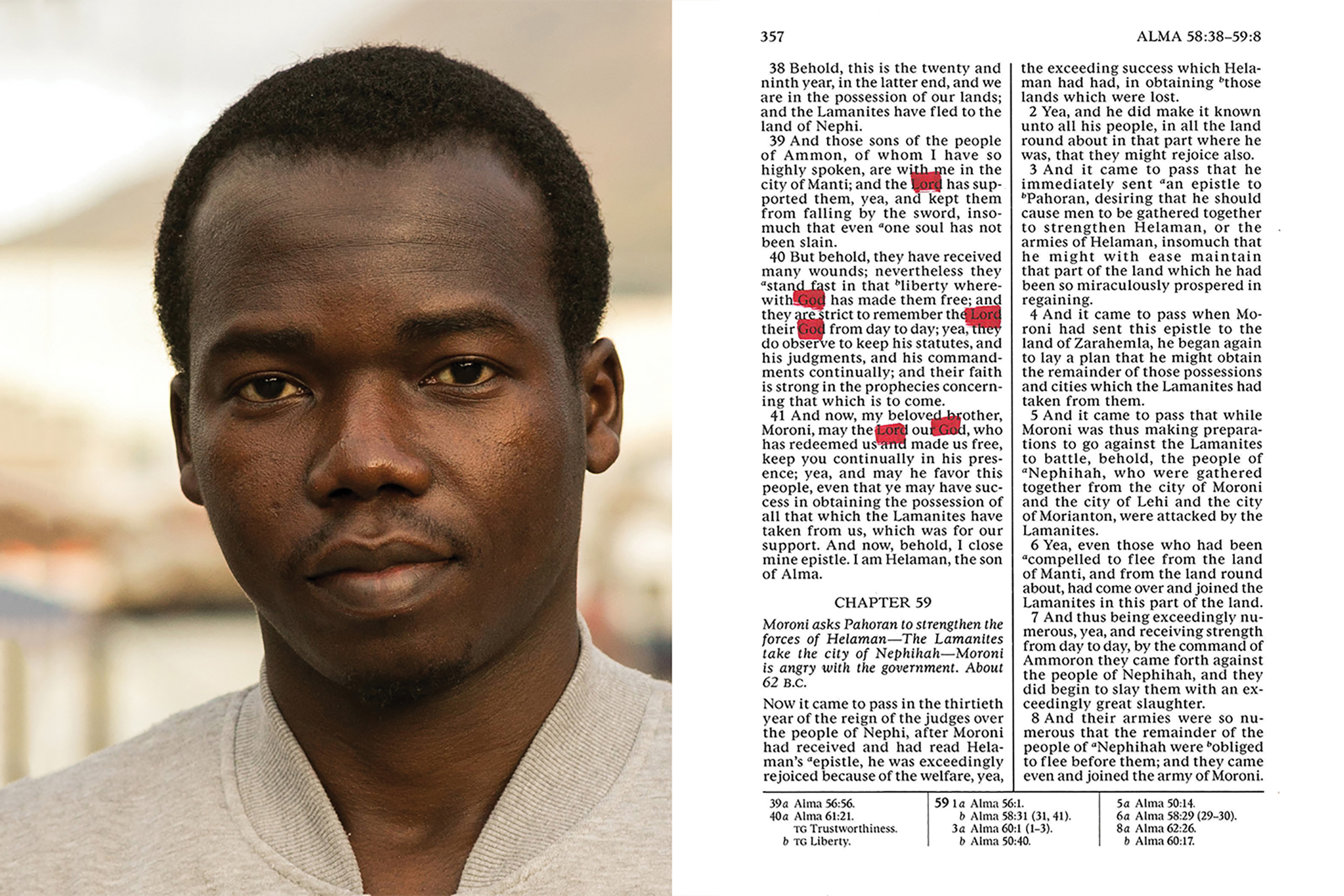
Sylvanus, Benin, Catholic, page 357
“Being from a country that knows something of oppression and war [Benin], I know what it means to pray for freedom. I felt this page tell me God will bless people of faith with the freedom they desire.”
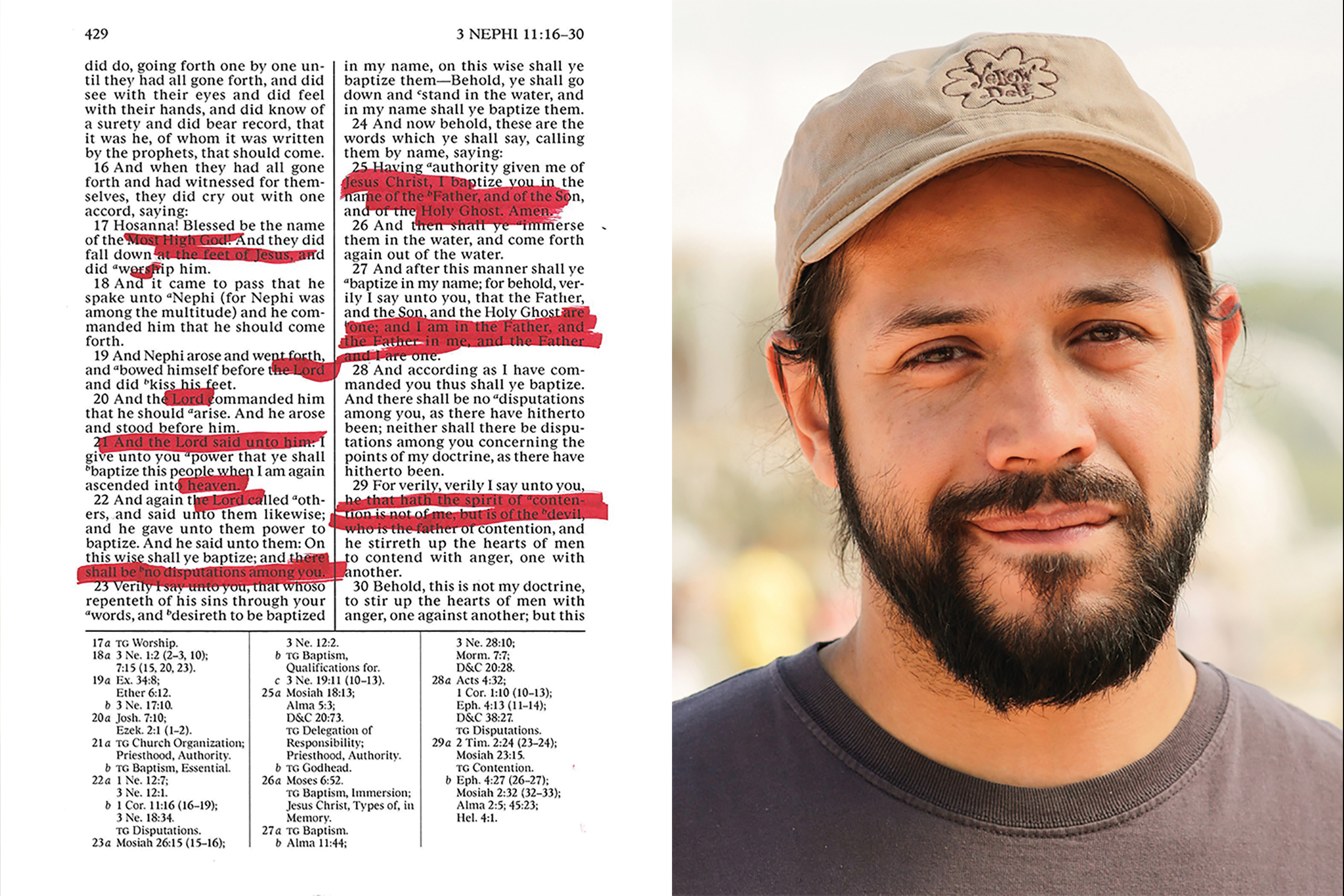
Gamalieo, New York, Commonwealth of the 12 Tribes, page 429
“I wasn’t really interested at first. I mean, I was hesitant. But as I read the page, I started to see. When the page mentioned that disputations were of the devil, I felt a connection with it because I believe that, and as I read more, I liked what I saw.
“Christianity somewhere over the past 2,000 years has gotten lost because of all the disputations. But I can definitely see that this book speaks of good things and of Christ, and if it helps people do what is good, then the book is good.
“This is the doctrine we are trying to teach. How do I get the next page? I need to know what Christ says to do next.”
Gamalieo is a member of a communal religious group that focuses on living in harmony as one.
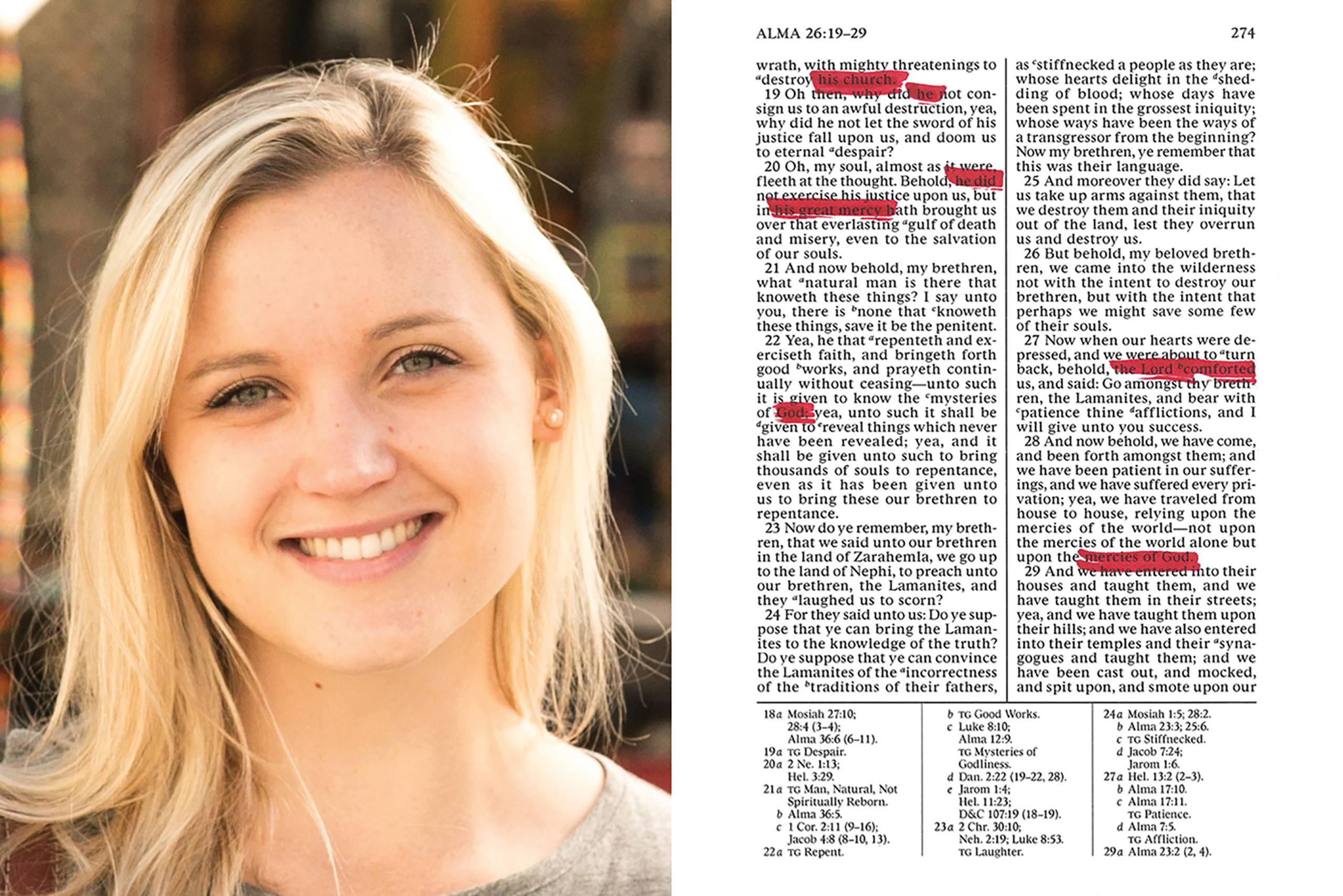
Kirsti, South Africa, Christian, page 274
“Religion should be about bringing people together and overcoming our differences to become united. In South Africa we have so many differences; we need more of what this verse taught me, that we can be one in Christ.”
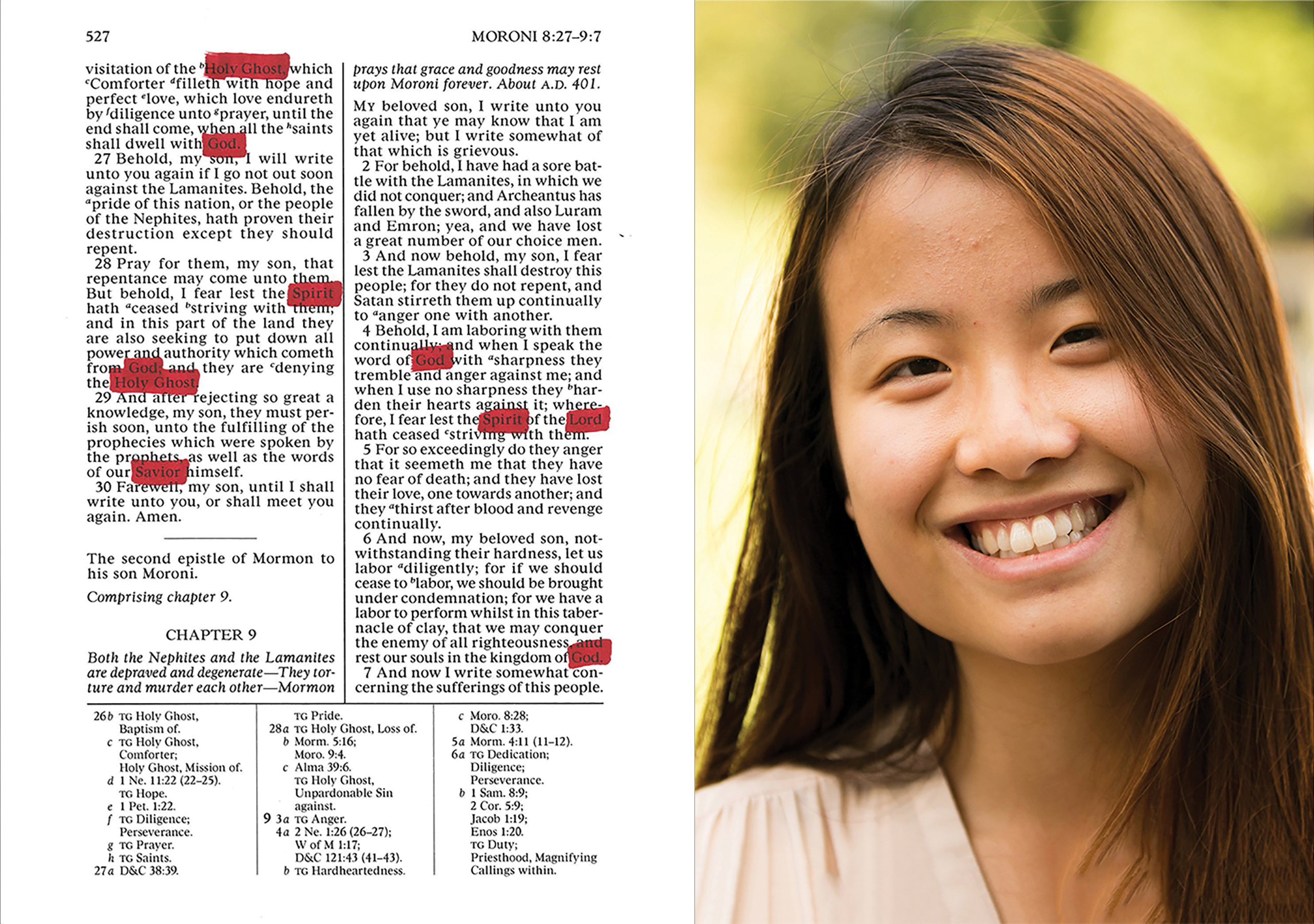
Katie, China, Agnostic, page 527
“It was really cool. I had never read a religious book until today. I got to see what everyone is talking about and identify those words.”
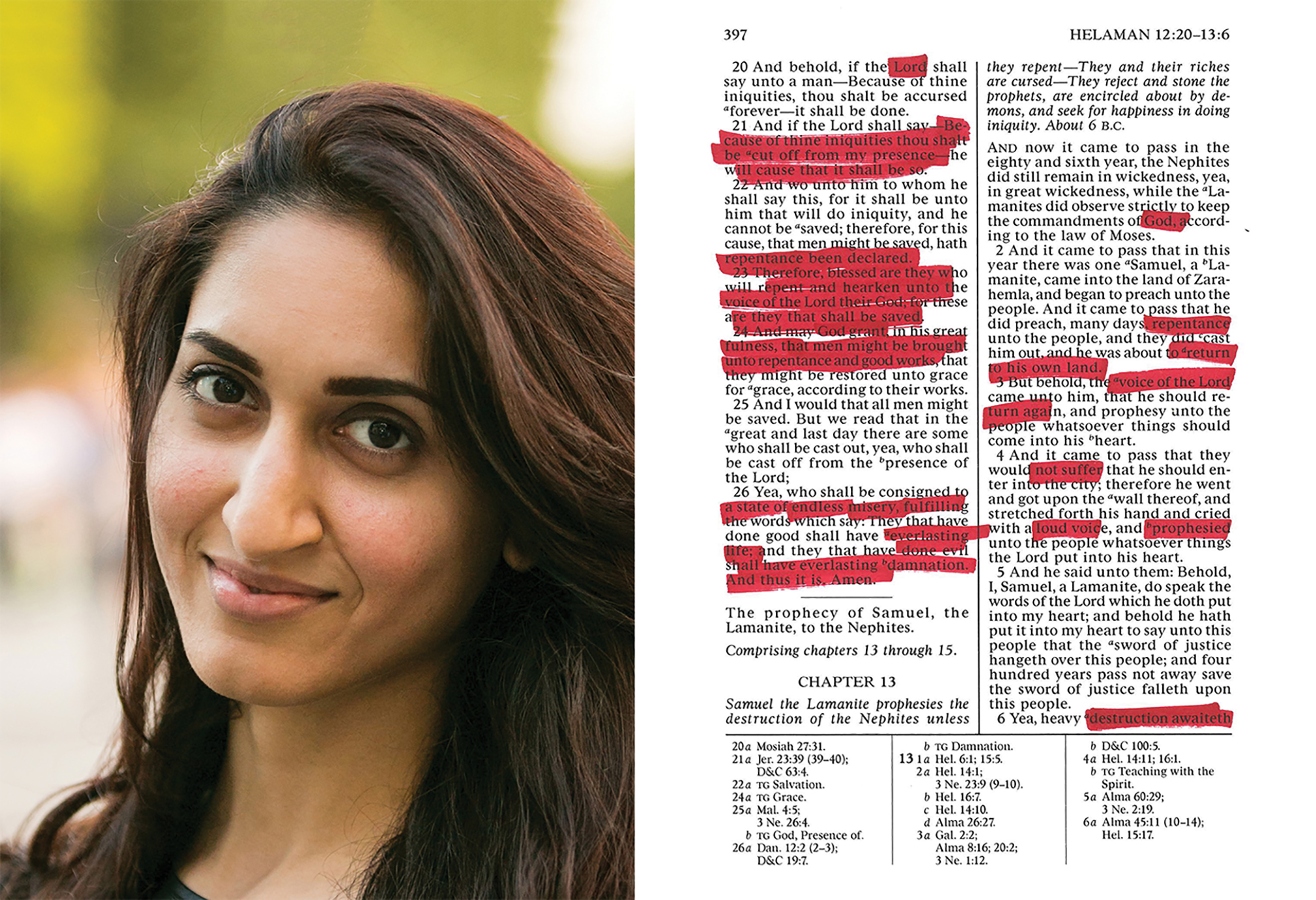
Amna, Pakistan, Muslim, page 397
“This [experiment] is a brilliant idea. You should take out an ad and tell people to be here. I woke up and turned on the TV today, and all I saw was war, refugees, violence, and problems. The world needs to see this [experiment]. To see that there is hope and love in the world and that God is good. . . . I’m so grateful to be part of this project today. The whole world needs to see it. Thank you!”
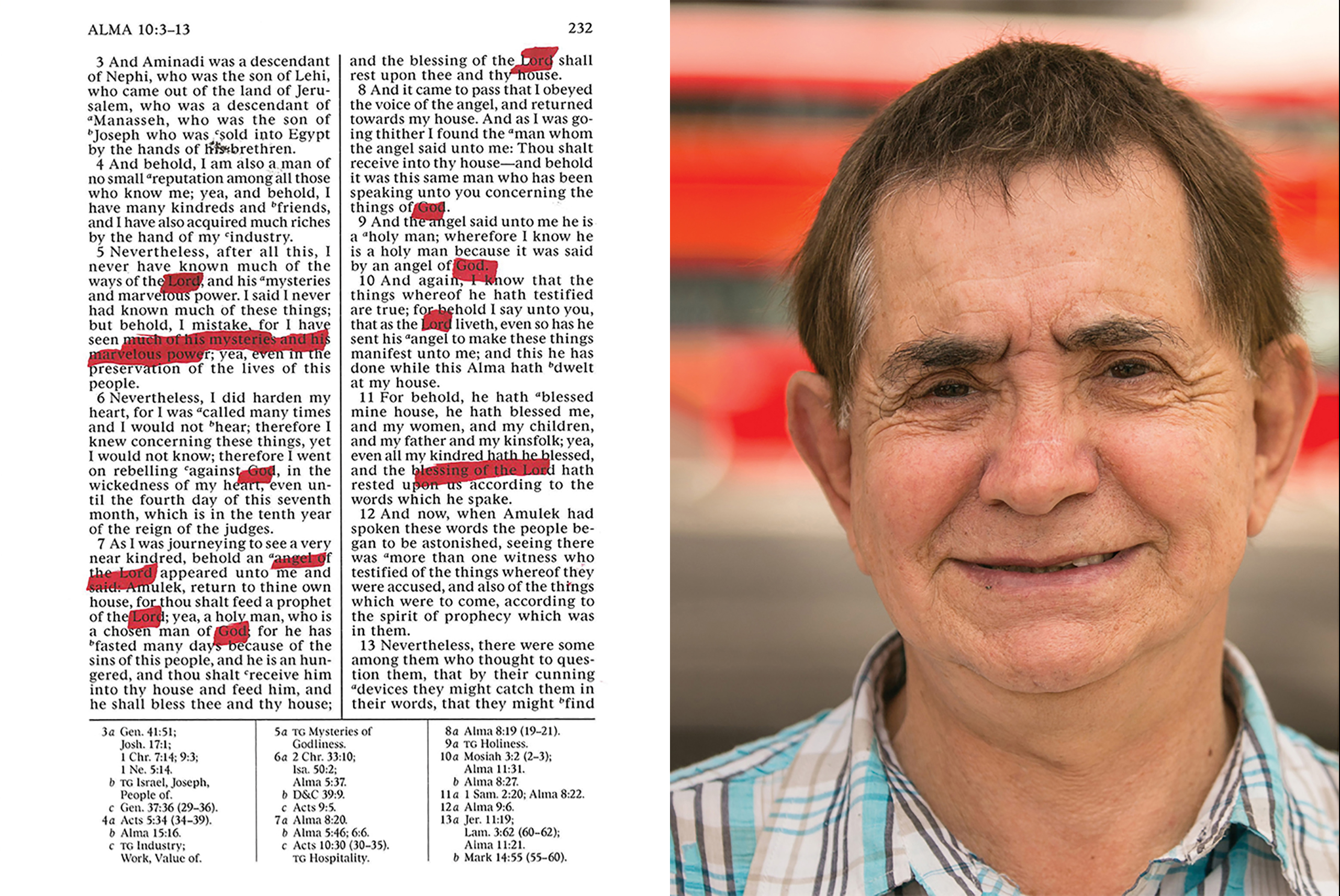
John, South Africa, Christian, page 232
“I didn’t know that I agreed with your doctrine. I think I am a secret Mormon!”
Every Sunday for 22 years, John said he went to Hyde Park in London to listen to the preachers at Speaker’s Corner, but he didn’t feel any connection until he read a page of the Book of Mormon.
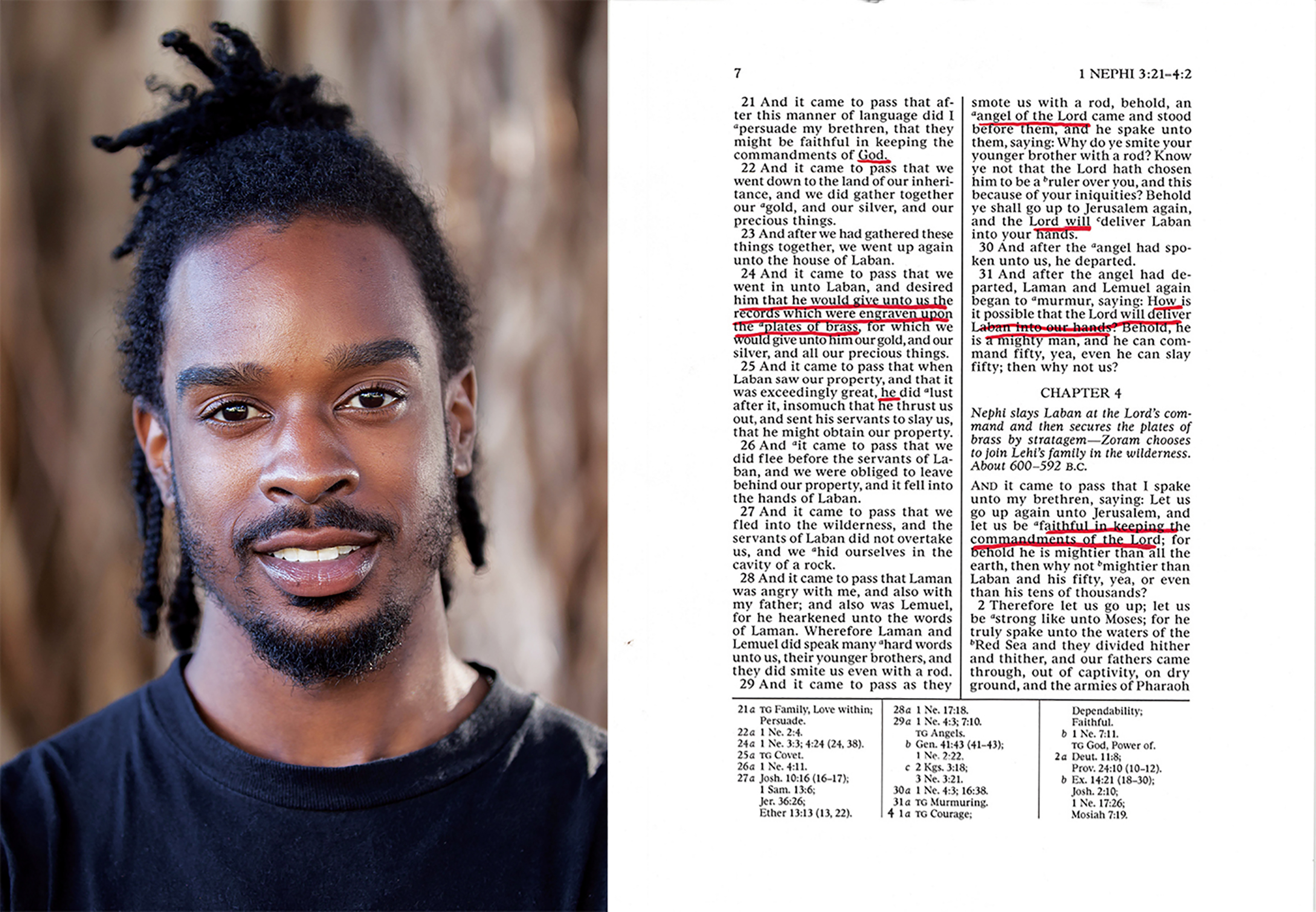
Danny, Texas, Christian, page 7
“I’ve never heard of the Book of Mormon before. But it wasn’t foreign. It was more familiar reading it. It’s like I was listening to a song that was familiar, but I couldn’t remember what it was called or who it was by. . . . It makes me want to find out more.”
Feedback: Send comments on this article to magazine@byu.edu.


